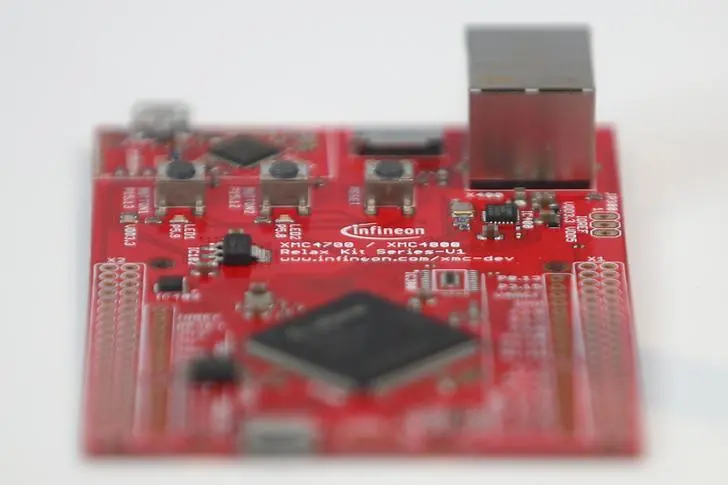PHOTO
STRASBOURG - The European Commission announced plans on Wednesday for a new chipmaking "ecosystem", to keep the EU competitive and self-sufficient after a global semiconductor shortage showed the hazards of relying on Asian and U.S. suppliers.
The United States last year announced its CHIPS for America Act aimed at boosting its ability to compete with Chinese technology.
"Digital is the make-or-break issue," Commission President Ursula von der Leyen said in a policy speech at the European Parliament in Strasbourg on Wednesday.
"We will present a new European Chips Act. The aim is to jointly create a state-of-the-art European chip ecosystem, including production. That ensures our security of supply and will develop new markets for ground-breaking European tech."
Industry Commissioner Thierry Breton said chips were more than just key components for automakers, smartphone makers and video gamers.
"The race for the most advanced chips is a race about technological and industrial leadership," he wrote in a blogpost.
Breton said a European Chips Act would encompass research, production capacity and international cooperation, and that the bloc should look into setting up a dedicated European Semiconductor Fund.
A shortage of semiconductors has posed one of the biggest risks to the EU's rebound from the effects of the COVID-19 pandemic. The Commission last year unveiled plans to invest a fifth of its 750-billion-euro COVID-19 recovery fund in digital projects.
Von der Leyen lamented the EU's reliance on Asian-made chips and its diminished share in the supply chain, from design to manufacturing capacity.
However, hurdles to building up Europe's chip capability include getting access to rare earth minerals outside the bloc and reluctance by companies to make hefty investments unless they can run the plants at full capacity to boost returns.
(Reporting by by Foo Yun Chee; editing by Gabriela Baczynska and Peter Graff) ((foo.yunchee@thomsonreuters.com; +32 2 287 6844; Reuters Messaging: foo.yunchee.thomsonreuters.com@reuters.net))





















